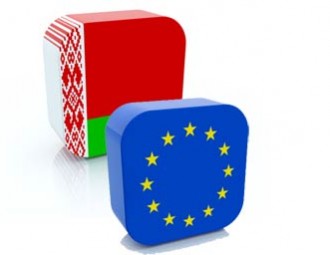Elena Tonkacheva: Belarusan authorities should be encouraged only after they fulfill 12 EU’s demands

One more primary demand is on top of those 12 – the release of political prisoners, emphasizes the head of the Center for Legal Transformation “Lawtrend”.
Let us recall that the Council of the European Union has taken 24 citizens of Belarus off the list of persons subject to EU sanctions. Among them are both former and current officials - Natalia Piatkevich (the former assistant to the president of Belarus), Leanid Maltsau (Chairman of the State Border Committee), Henadz Niavyhlas (the former head of the Presidential Administration), Anatol Rubinau (former chairman of the National Assembly), Yauhen Paludzen (former Deputy Minister of Internal Affairs), officials, judges, and university heads. The EU Council gave no reason for removing the 24 from the blacklist but said that the sanctions against Belarus must continue because "not all political prisoners were released and rehabilitated" and the "principles of a law-ruled state and democratic society have not improved in Belarus”.
In the interview with the EuroBelarus Information Service Elena Tonkacheva, the head of the Center for Legal Transformation “Lawtrend” notes that “the refusal from the list of those banned from entering the EU was one of the Minsk’s demands regarding “normalization” of relations with the European Union”. However, Elena Tonkacheva emphasizes that for today this shortening of the list of persons subject to EU sanctions looks illogical: “Since until now the volume of demands of the EU regarding the official Minsk hasn’t changed. Political prisoners remain in Belarus’ prisons – this circumstance is enough for not violating the demands of the EU”.
Elena Tonkacheva assumes that “this list should be considerably shortened,” but “only after the release of the political prisoners”. “Before their release this step of the EU is rather misleading for the existing system of relations since until now the official Minsk didn’t demonstrate any of the real actions on its behalf that would aim at the actual striving for changing the situation in crisis points of human rights and democracy”, - said the head of the Lawtrend.
Apart from the problem of political prisoners that has become particularly actual over the last 5 years the questions to the Belarusan authorities are the same: “abolition of death penalty – there’s no positive dynamics at all, talks around the introduction of the institution of ombudsman don’t even have a hint of positive discussion”.
“If we really assume that the possibility of having a normal dialog with the authorities on issues of human rights is coming back, then the EU’s logical position should include several principal positions, - says Elena Tonkacheva. – One of them is the inclusion of Belarusan human rights defendants into the dialog, and turning them into considerable and obligatory part of the dialog. What we see now are short and screen consultations on this issue. Basically, renovation of the dialog is the issue that was decided on by the EU without due consultations and inclusiveness of Belarusan civil organizations. Human rights defendants got to know about the official event dedicated to this issue only few days before it and had no possibility whatsoever to take part in, for example, parallel event that could have been organized by Brussels, if the EU officials didn’t have a chance to make the meeting trilateral”.
Elena Tonkacheva also sees the need to get back to the 12 demands of the EU – to the agenda that has been actual back in 2009: “But even now this agenda remains actual. We need to come back to it in the full volume, not shorten it. I believe that the steps should be as following: 2) the release of political prisoners; 2) establishment of dialog area with the obligatory participation of the civil society; 3) return to the EU agenda of 12 demands; 4) actual monitoring of the current state of affairs at every point of the agenda; 5) clear monitoring of actual changes – without meaningless meetings which after the official Minsk got back into the dialog, unfortunately, end in nothing when it comes to real change of the situation in the human rights sphere”.
Elena Tonkacheva is convinced that the policy of encouraging bonuses and encouragement with overtures “doesn’t have anything in common with the aims claimed as the fundamental in the EU; it is admittedly losing, all the more that there have been precedents. It’s a pity we are moving in a vicious circle”.
-
03.01
-
07.10
-
22.09
-
17.08
-
12.08
-
30.09








































